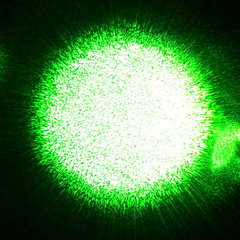 I missed out on a lot of great books in the nineties for bad reasons. Ender's Game slid by me because, to my teenage eyes, John Harris' iconic cover made it look like the kind of Sahara-dry hard SF I hated. Kangaroos in top coats looked a little too weird even, so I passed on Gun, with Occasional Music. The Giver didn't get more than a glance, because what was up with that hoary old guy? Bad reasons one and all. I had an even worse rationale for bailing on Neal Stephenson's 1992 dystopia Snow Crash at the halfway mark: Having just discovered William Gibson's gritty world of surgically altered razorgirls and hologram-throwing confidence men, I'd convinced myself that cyberpunk shouldn't be funny. And funny is just one of the many things that Snow Crash happens to be.
I missed out on a lot of great books in the nineties for bad reasons. Ender's Game slid by me because, to my teenage eyes, John Harris' iconic cover made it look like the kind of Sahara-dry hard SF I hated. Kangaroos in top coats looked a little too weird even, so I passed on Gun, with Occasional Music. The Giver didn't get more than a glance, because what was up with that hoary old guy? Bad reasons one and all. I had an even worse rationale for bailing on Neal Stephenson's 1992 dystopia Snow Crash at the halfway mark: Having just discovered William Gibson's gritty world of surgically altered razorgirls and hologram-throwing confidence men, I'd convinced myself that cyberpunk shouldn't be funny. And funny is just one of the many things that Snow Crash happens to be.In the near future, America has shattered into a kaleidoscope of conflicting corporate confederacies. Franchised nation-states stipple the landscape, popping up like mushrooms on ground left fallow following the near-utter collapse of the United States' government. After that catastrophic failure, America excels at only four things in the global marketplace -- movies, music, software, and Mafia-managed, high-speed pizza delivery. Hiro Protagonist (yes, you read that correctly) has worked in two of them, starting as a freelance cyberspace programmer and diversifying into 'za when corporations got into the microcode game. Pizza delivery is a remarkably violent field. Fail to get to your address within the promised thirty minutes and it'll cost you your life. It's dangerous work that'll only grow riskier for Hiro, who wears body armor and Japanese swords while on his route, when he almost fails a delivery one day. That near brush will bring him into close contact with skateboard-surfing highway couriers, cybernetic attack dogs who can break the sound barrier, an Aleut assassin with his own personal atomic bomb, a religious megalomaniac with plans for world domination, and a drug called snow crash that can hack the human mind.
Like I said earlier, Snow Crash is about as far from the grimdark school of speculative fiction as you can get. I mean, just look at the main character's name, not to mention the way he dubs himself The Deliverator while ferrying double pepperoni pies around Los Angeles. Hiro is a proud graduate of the CosaNostra Pizza University, his roommate fronts a band called Vitaly Chernobyl and the Meltdowns that plays ditties such as "Control Rod Jam" and "Radiation Burn," and (given the lack of a functioning justice system) convicts walk around with POOR IMPLUSE CONTROL tattooed across their foreheads as a warning to others. Pretty wacky and enjoyable if you take it for what it is -- well, most of the time. Despite the silliness, Stephenson is obviously a brilliant guy. I just wish he hadn't devoted about a third of his narrative real estate to eccentric theories about the interconnectedness of spirituality, neurology, and linguistics. If Wellhausen, Dawkins, Chomsky, and Peter Enns decided to write a unified theory of What Faith Does, you might end up with the prime plot mover of Snow Crash. It's every bit as stilted and shoehorned in as it sounds, what with it being surrounded by whip-smart prose and bloody interludes where a Really Bad Guy impales people with homemade harpoons. Still, you have to take a novel for what it is. Though Snow is uneven, it's deep and enjoyable. Crash right on in.
(Picture: CC 2005 by Steve Jurvetson)


No comments:
Post a Comment